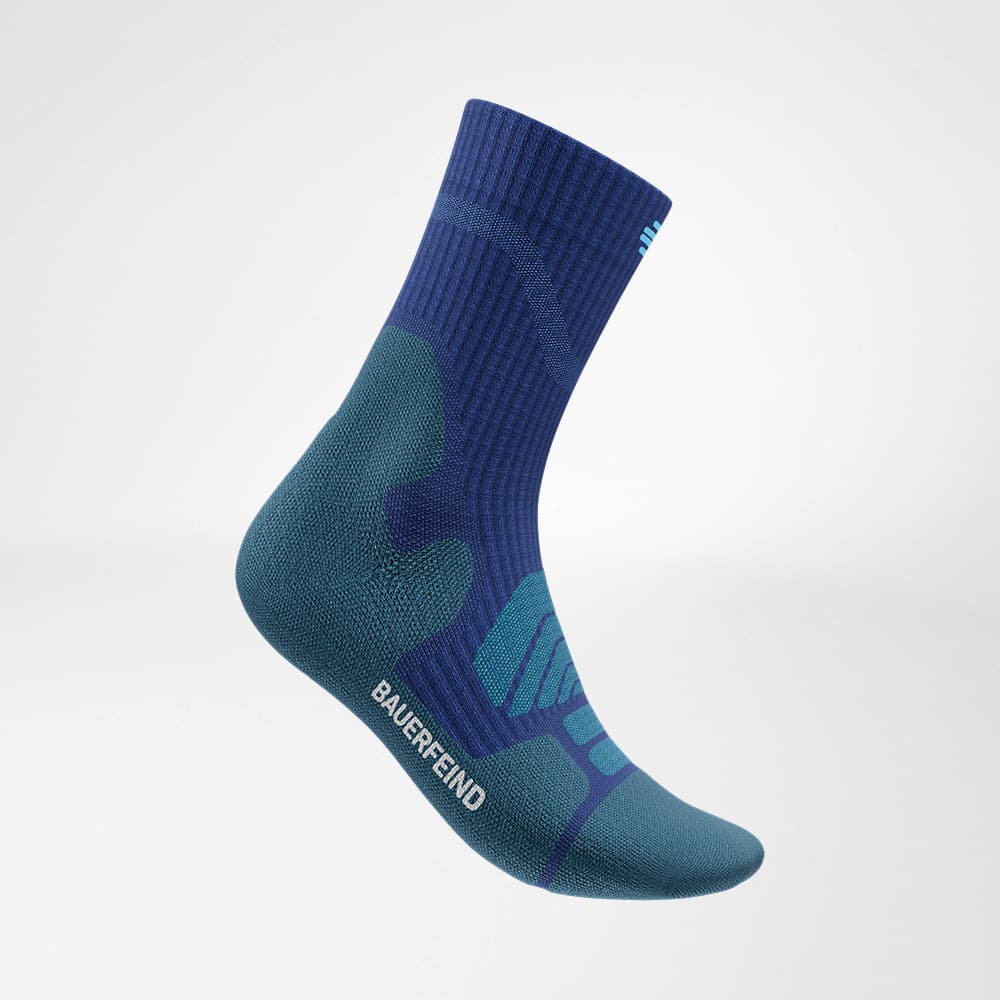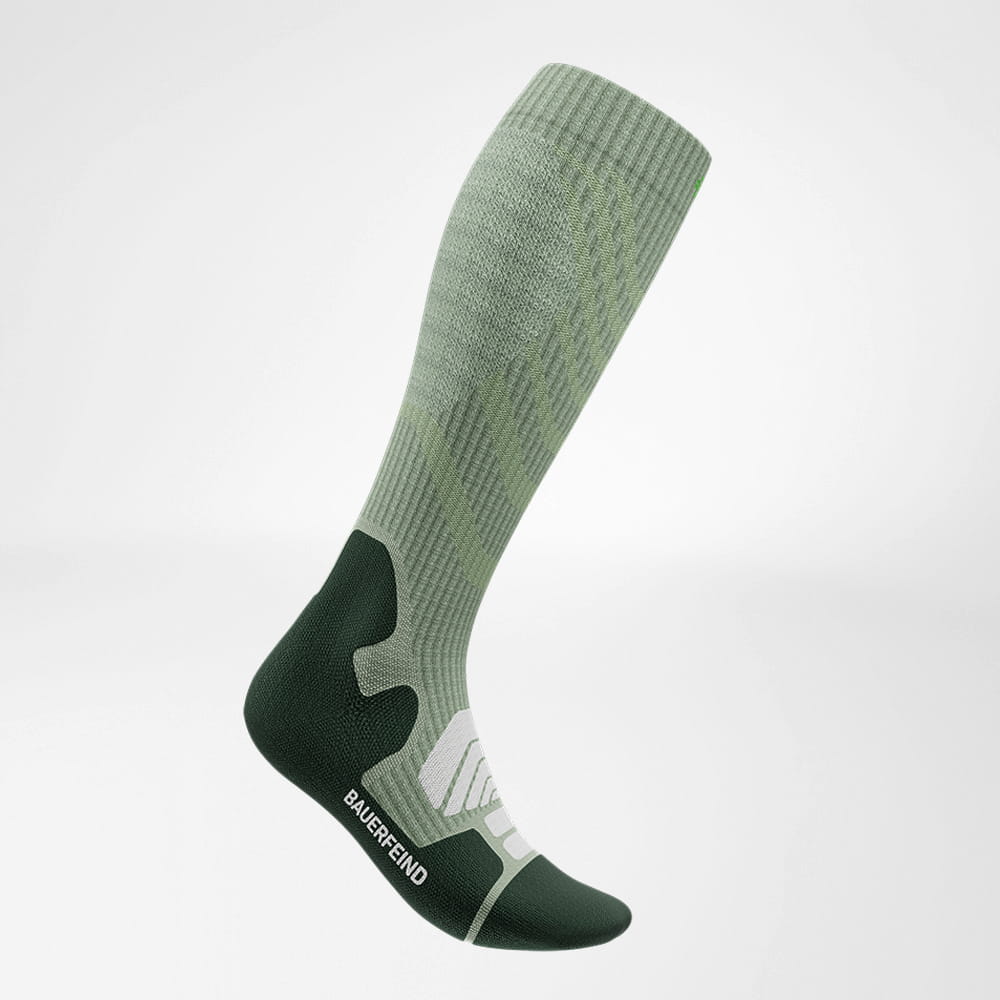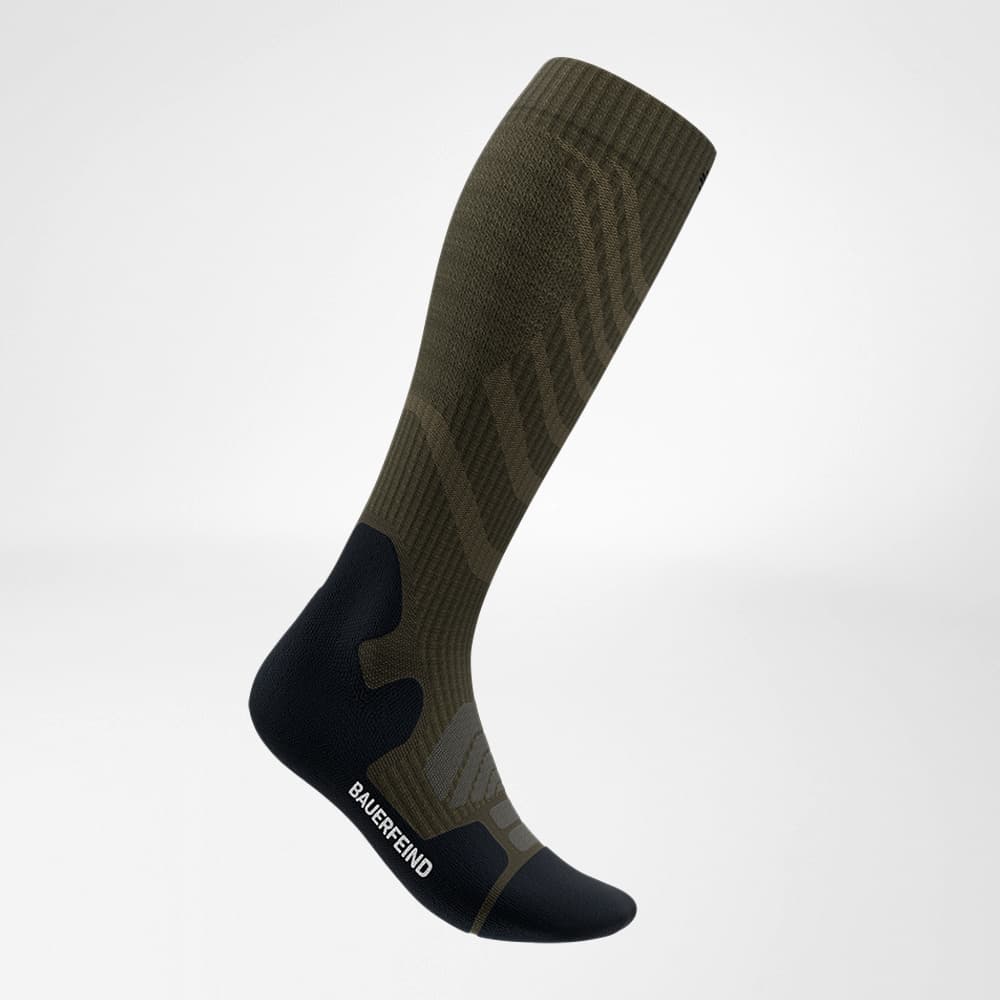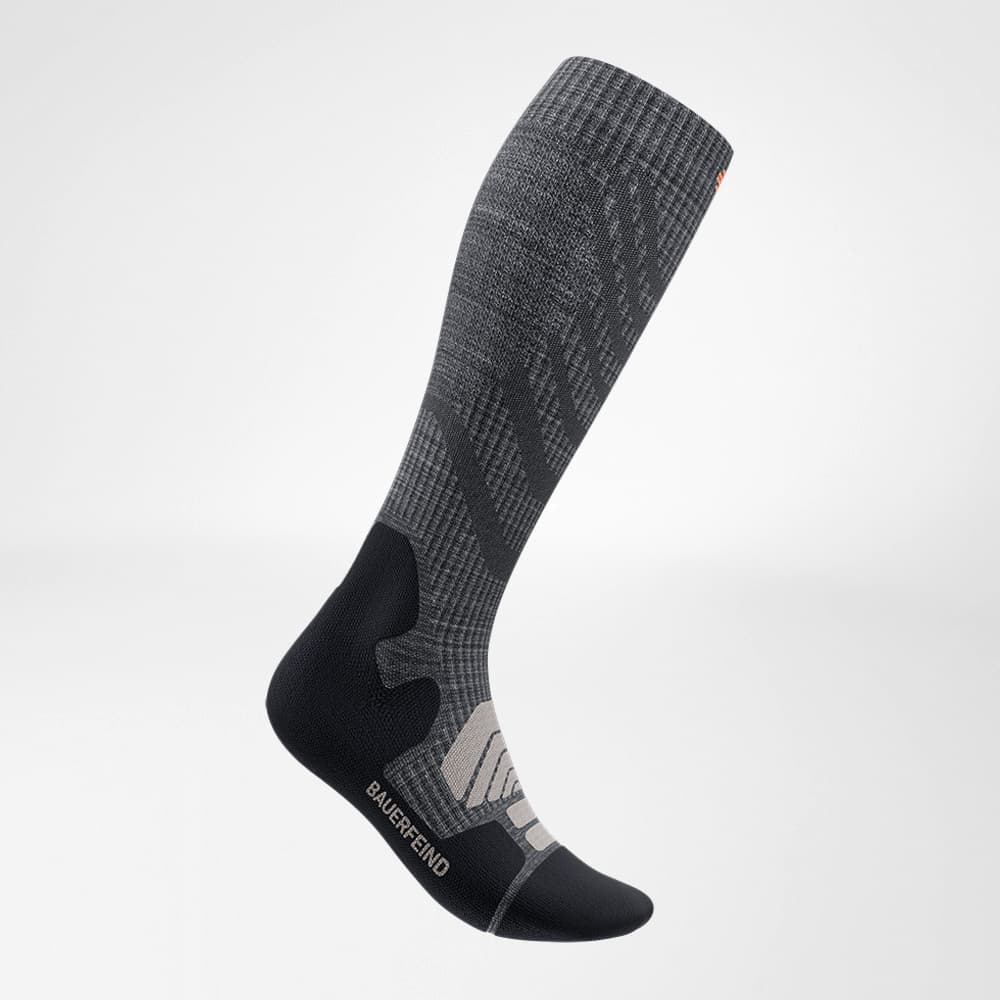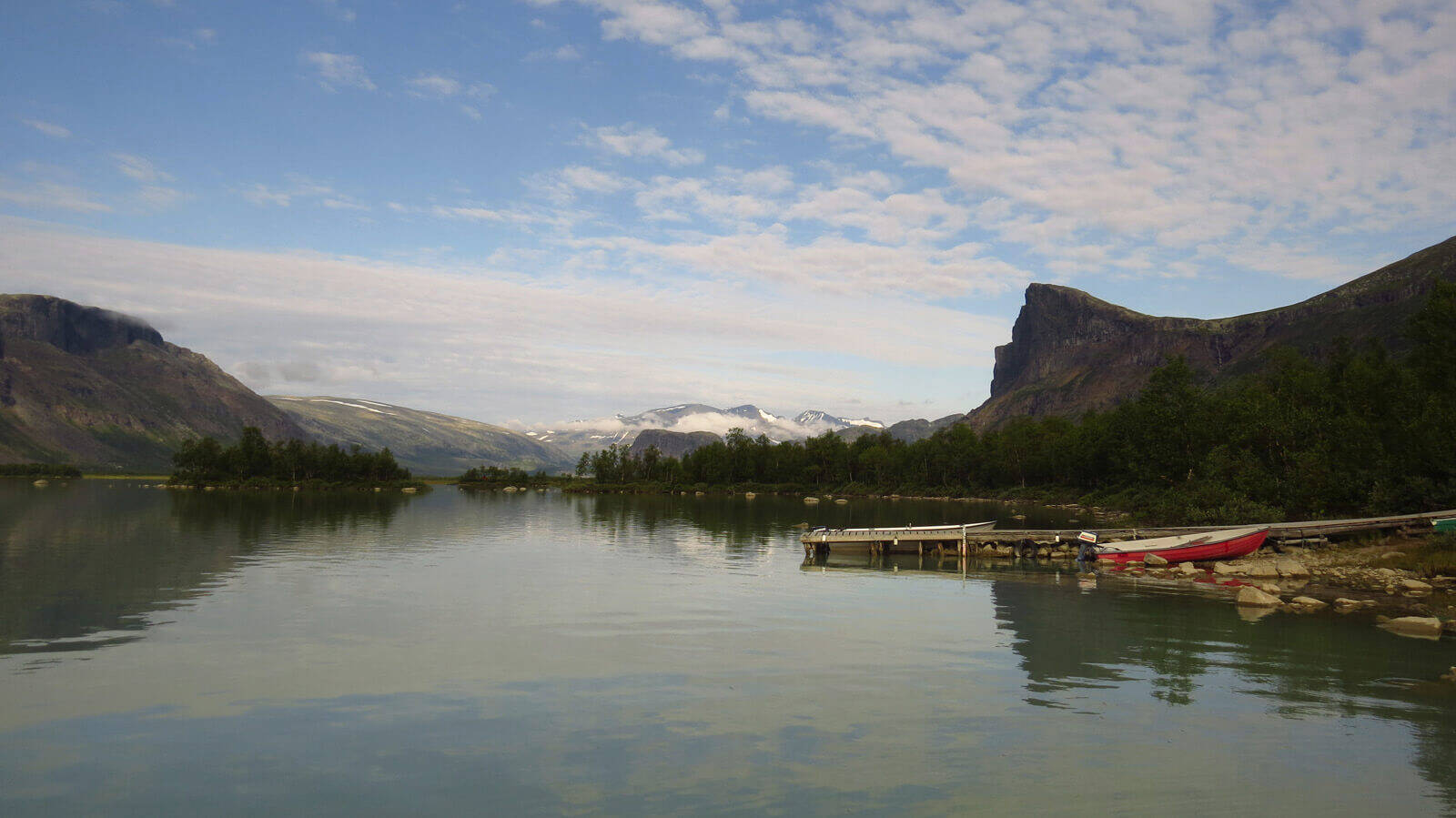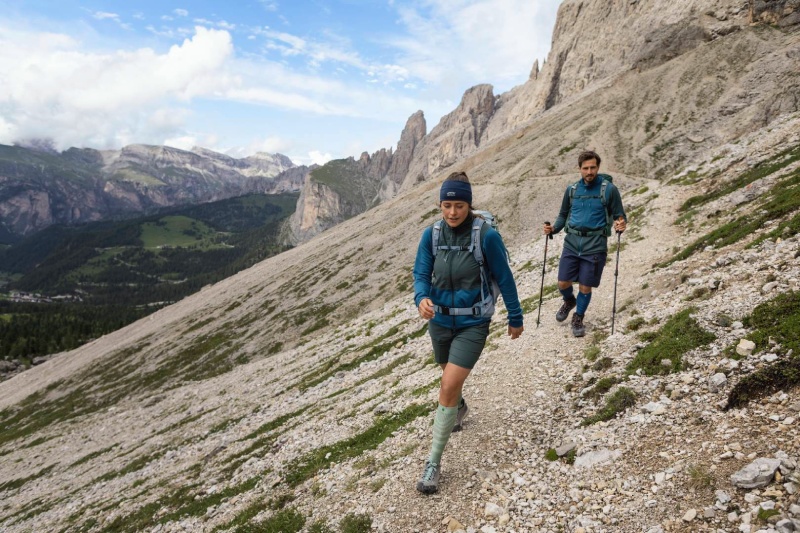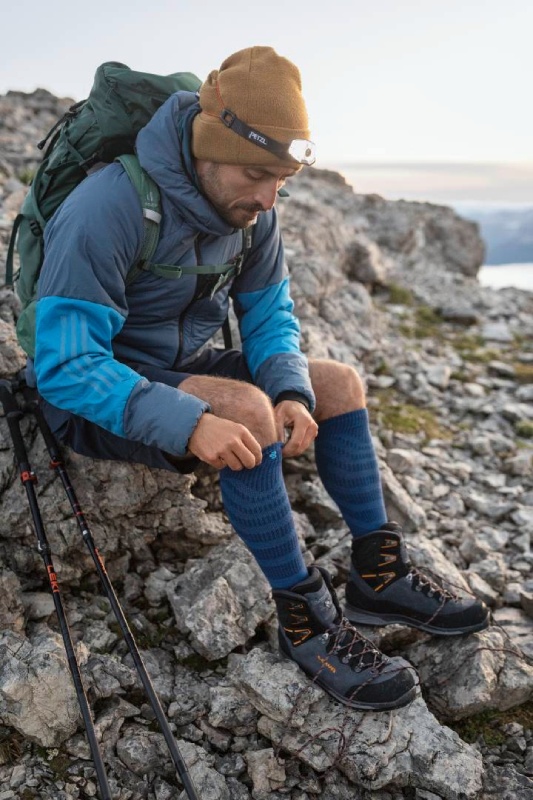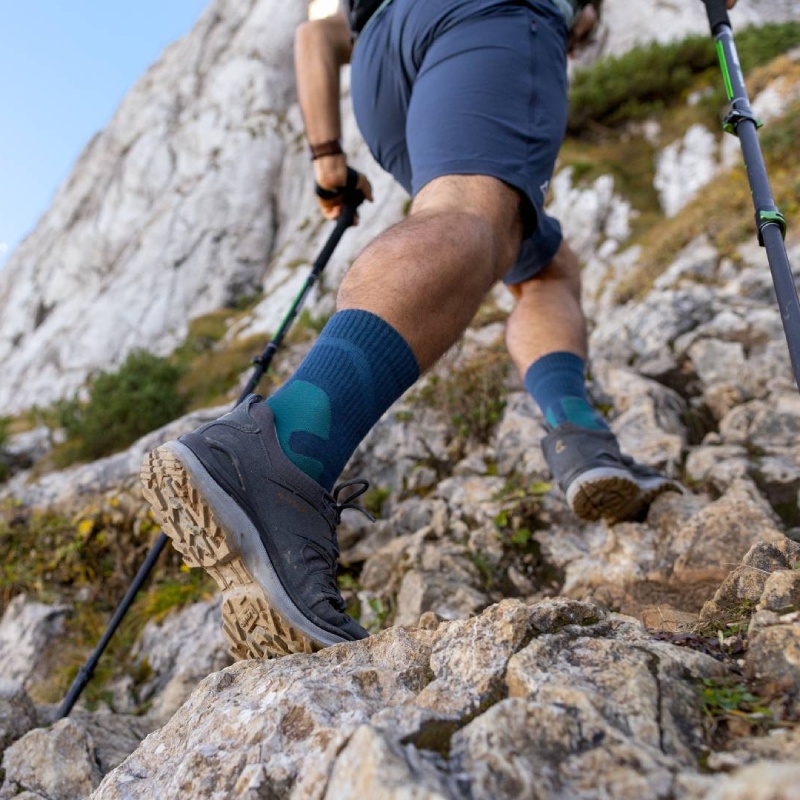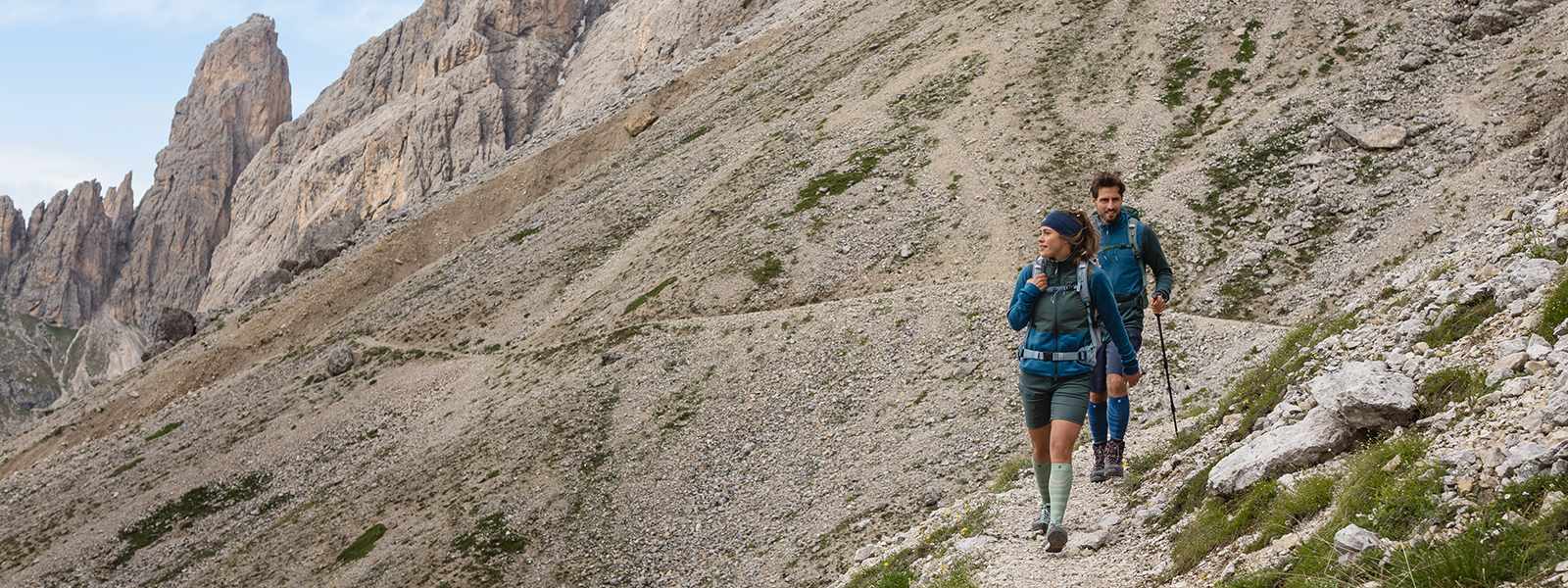
Hiking
Hiking for beginners
Everything important about route, equipment and behaviour on the montain
Hiking is healthy: Let's go!
Regular hiking has been proven to have a positive effect on health - both physically and mentally. Studies suggest that hiking, especially mountain hiking, significantly improves well-being and also significantly reduces physical problems such as high blood pressure, respiratory or heart complaints.
Reason enough to swap the cosy sofa for the "living room" of nature and lace up your hiking boots. In this article, we go into everything beginners to hiking should pay attention to.
Here are a few tips for the ideal route:
- Orient yourself to the fitness and experience level of everyone involved.
- Beginners should first choose shorter routes on signposted hiking trails.
- Find out in advance about important points on your route, e.g. parking facilities near the starting point, milestones or stopping points and huts.
- Find out about the distances between the various waypoints and plan generously for breaks (these are often not taken into account on the signposts).
Equipment: Concentrate on the essentials
As the day of the hike approaches, it's time to pack. As is often the case for hiking or trekking tours, less is more. Here is a small list of things that you should definitely take with you.
Our Hiking-Socks are a great investment if you're passionate about the outdoors and value extra power for your muscles and greater comfort for your feet.
- Identity card, handkerchiefs, cash & a pocket knife as "basic supplies" and to be able to "act" in an emergency.
- A hiking map, a compass (possibly as an app) and a GPS device or a GPS watch for orientation, because smartphones tend to give up the ghost at the decisive moment.
- Light, breathable clothing, at least a decent raincoat, sunscreen and headgear if necessary, especially on sunny days and at high altitudes.
- A small medical kit: first aid kit, blister plasters, personal medication, tweezers, disinfectant.
- Enough water and small snacks see point nutrition.
Nutrition: Don't be a breakfast muffin!
As an endurance athlete, you of course know how important the right nutrition is on hiking tours.
You should remember this:
- Carbohydrate-rich food the day before, i.e. pasta, rice, wholemeal bread or potatoes.
- Eat a sensible breakfast on the day of the hike! This is important, especially for those who don't eat breakfast. Of course, you should avoid anything too hard to digest.
- We recommend small carbohydrate-containing and easily digestible snacks such as fruit, vegetables, dried fruit, muesli bars, nuts and dextrose.
- And of course: drink enough! Especially when hiking, fluid loss is often not so noticeable. Drink a quarter to half a litre of water, tea or fruit juice spritzer every half hour.
The Dos and Don‘ts on the mountain
If, after a few familiarisation hikes in the forest and on the plain, you are planning to go a little higher up, there are other important things you should definitely keep in mind.
The Dos on the mountain:
- Plan more breaks: Especially if you are undertaking your first major tours in the middle or high mountains, it is essential to plan additional breaks. It is especially important to drink regularly to avoid circulatory problems.
- On the mountain you say hello to each other and are on a first-name basis.
- Take your rubbish with you: You are a guest in nature, so take your rubbish back with you so that many more generations can enjoy it.
- Take sunscreen with you: Especially at high altitudes, the sun has enormous power, even when the sky is overcast. So always put on sunscreen and wear a hat and sunglasses!
- Be friendly and understanding: Especially on narrow paths in heavily hiked regions, small "traffic jams" can occur from time to time. In such situations it is especially important to be friendly, understanding and patient. If you let others go first once in a while, you will not only get a smile back, but you will also ensure that risky situations can be avoided in the first place.
The Dont's on the mountain:
- Just start running without warming up your muscles: If the climb is right at your starting point, do some light warm-up exercises beforehand to get your muscles up to operating temperature.
- Loose stones: It should be obvious that this is not a good idea. Otherwise, what was supposed to be fun can turn out to be serious.
- Petting animals: Even if petting cows or horses is tempting, please leave them alone - after all, this is their habitat.
- Drinking water from puddles: Even if you are very thirsty, this is not a good idea, because bacteria and worms collect even in small puddles and, in case of doubt, make for very unpleasant memories of your hiking tour.
- Hiking without a plan: Especially in the mountains, you should know the paths (especially those that lead back down to the valley) in order to be able to react to changes in the weather if necessary.

